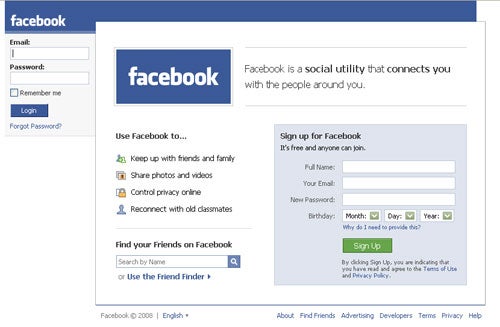Cyberclinic: Why can't I use an alias on Facebook?

On the one hand, Facebook encourages you to invite friends to sign up and expand its already colossal user base. On the other, your account will be disabled if you post too many messages, incessantly ask complete strangers to be your "friend", or sign up under an alias. So if the site administrators come to the conclusion that your parents didn't actually call you Sparkie M'Larkie or Dnsfisuah Fadhfanwfku, they'll shut you out until you agree to use the more mundane name on your birth certificate.
Of course, Facebook's size means that this is always going to be policed in a fairly arbitrary fashion; a quick inspection reveals many people pretending to be Jimmy Savile, while non-human entities such as Alf the Tortoise and Chav Scum have also slipped under the radar.
There are a number of reasons why Facebook is so strict on this. One is simply to stop spam; MySpace has shown that if you allow aliases to run rampant, people can register dozens or hundreds of profiles, and your network of "friends" becomes an unmanageable mass of bands, clubs and comedians hell-bent on self-promotion.
More importantly, to maintain the value of the site for its advertisers, Facebook is desperate to keep tabs on exactly who is using the service, and when.
As a blog commenter pointed out, one of the web's founding principles is the ability to lurk quietly and hide behind an alias. By demanding that we present our true identity, Facebook has become a more authentic social network. But in doing so it has unwittingly unveiled our presence on the internet when we might have wanted to remain anonymous, and gathered a huge amount of personal data that we might otherwise have chosen to keep to ourselves.
Diagnosis required
Email any technology gripes to cyberclinic@independent.co.uk, or join the discussions on the blog at www.independent.co.uk/cyberclinic. Currently under discussion: How can I grab a website domain name that someone else has let expire?
Join our commenting forum
Join thought-provoking conversations, follow other Independent readers and see their replies
0Comments